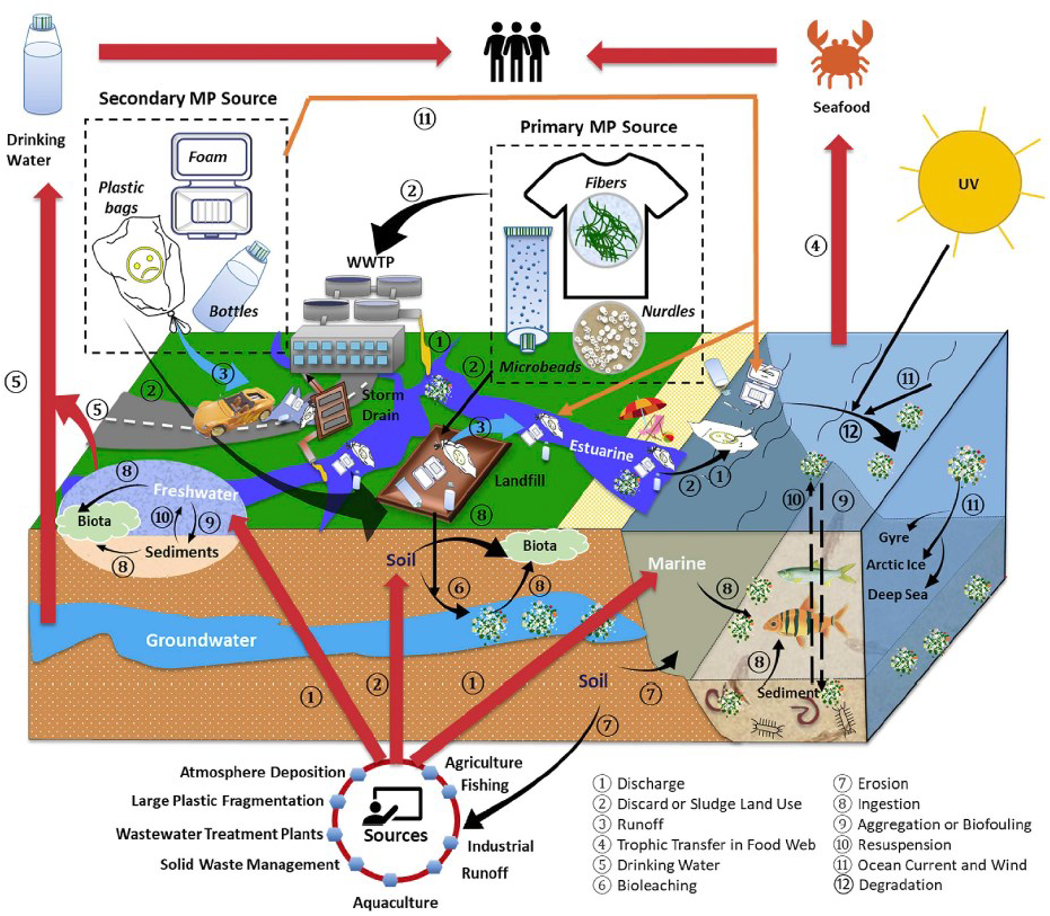
Nancy Goucher, Knowledge Mobilization Specialist for the Water Institute, was pleased to present at this year’s National Water and Wastewater Conference 2022, which took place from November 6-9 in Halifax, Nova Scotia.
Nancy was invited to speak about innovative research approaches for mitigating microplastics pollution to an audience of water leaders from across the country.
Between now and 2050, plastic manufacturing is expected to double to about 800 million tonnes per year. Because plastic does not degrade very quickly and we are only recycling about 9% of all plastic produced, an enormous amount of plastic will accumulate in our watersheds from a multitude of sources such as litter, washing machine discharges and rubber tires.
Researchers are discovering that plastics are everywhere. They have been found in over 220 species; they are moving through our aquatic and terrestrial food chains; and they are in the seafood we eat, in the bottled water we drink, and in table salt.
So how should water and wastewater leaders respond to emerging concerns like microplastics? Since science is still actively under development, it is difficult to develop policy responses. Nancy’s key message was that responding adequately to emerging concerns requires navigating the space between science and policymaking.

Photo: Plastics cycle: Rouch, D. A. (2021) Plastic future: How to reduce the increasing environmental footprint of plastic packaging. Working Paper No. 11, Clarendon Policy & Strategy Group, Melbourne, Australia.
Using lessons learned from the NSERC and ECCC-funded Microplastics Fingerprinting at the watershed scale: from sources to receivers, research project based at the University of Waterloo, Nancy shared tips for successful collaboration between practitioners and researchers:
- Meet research partners early and connect regularly
- Practitioners, be prepared to answer lots of questions
- Researchers, respond to partners in a timely manner
- When planning meetings, leave lots of time for conversation and dialogue
- Use knowledge brokers where possible
- Researchers, be sure to let your partners know how you incorporate their input
“When it comes to emerging issues like microplastics, researchers need to work closely with their project partners to navigate the space between science, policy and politics. Doing so, starts with establishing mutual respect, promoting a culture of openness, and being patient with one another,” says Goucher.
To stay up to date on the latest research from The Microplastics Fingerprinting at the watershed scale: from sources to receivers visit the website here.